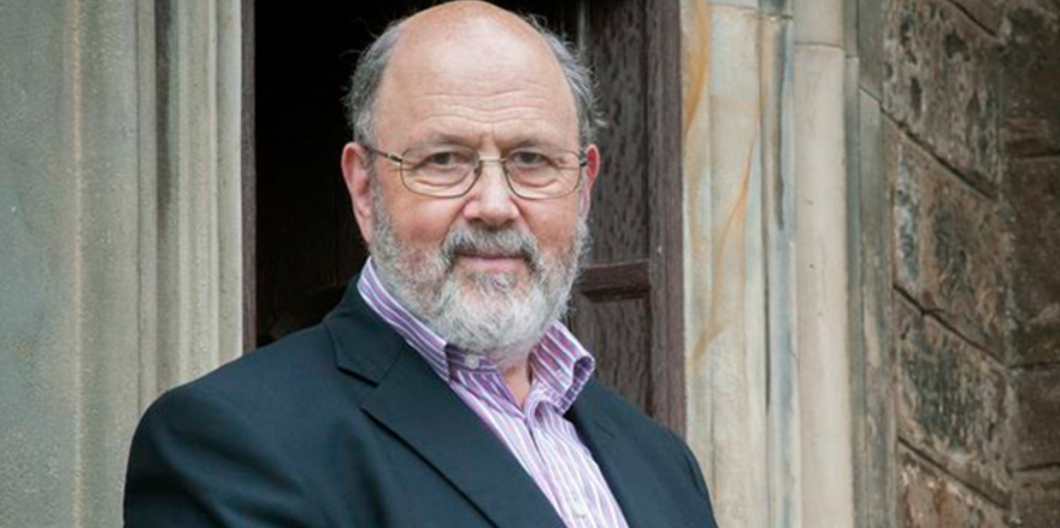Many of the problems that liberalism’s critics attribute to a political philosophy are actually the outgrowth of otherwise salutary scientific development.
N.T. Wright's Epicurean Enlightenment
N.T. Wright, perhaps the world’s most famous living theologian after Joseph Ratzinger, gave the First Things Erasmus Lecture at the Union League Club in New York City the evening of October 28. He took aim at the Enlightenment’s fact/value distinction, but with a twist. His concern in the talk wasn’t so much to beat up secularists outside the Church—instead, his main concern was the Church itself. He argued that the modern Church has internalized this Enlightenment dualism, resulting in impotence and irrelevance.
While Wright correctly characterizes what ails the Church at major points, he nonetheless paints the Enlightenment and its implications with too broad a brush.
Drawing on Catherine Wilson’s book, Epicureanism at the Origins of Modernity, Wright said,
I see the Enlightenment not simply as a ‘secularist’ movement, but as actually Epicurean, a modern retrieval of an ancient philosophy. That identification enables us to highlight various things which the ‘secular’ label screens out—particularly the fact that modern western culture is not a new thing based on modern science, as so often assumed, but an ancient worldview with some modern twists and footnotes.
While Epicureanism today is often understood to refer to a person’s devotion to refined pleasures (usually food and drink), that’s not the focus of classical Epicureanism. Wright (and Wilson) focus on the “cosmology” of classical Epicureanism. This cosmology is atomistic materialism. The atomism of this cosmology, they argue, when applied to understand the human world, gives rise to social contract theories in which government arises through the actions of abstracted, unsocial individuals. And the materialism of this cosmology implies the giving of oneself over to material sensuality because there is no reality but material reality.
This is an arresting hypothesis, but that the Enlightenment is uniquely defined by a return to classical Epicureanism is a stretch. The thing is, there was a lot more going on philosophically during this era beyond a reasserted Epicureanism. Numerous other intellectual movements of the period can also account for the rise of materialist and mechanistic accounts of nature and society, including “late Scholasticism, alchemy, Renaissance humanism, Copernican astronomy, and Galileo’s new science of motion,” according to early-science historian Margaret Osler. All of these, she writes, “contributed directly to the development of [atomistic] philosophy and an empirical and experimental approach to natural knowledge.”
Suggesting the consequences of the Enlightenment in Scotland were the same as in France and as in the American Colonies is as implausible as pointing solely to Epicureanism as its essence. Yet Wright makes exactly this kind of claim, painting the influence of the Enlightenment far too uniformly. For example, Wright argues that:
The French and American revolutions had exactly the same . . . epistemological shape, and for very similar reasons. The various moves towards fuller democracy across the western world were all saying the same thing.
Lumping the bases for these two revolutions together is a serious oversight. While Thomas Paine certainly represented one extreme in American Revolutionary thought, and his book, Common Sense, was hugely influential in making the case for the American Revolution, Wright misreads the American Revolution in suggesting Americans widely shared Paine’s broader, Lockean epistemology. Wright reads uniformity between the American and French revolutions where there is difference.
The French Revolution sought to overturn existing social as well as political practices. It sought to be a thorough-going revolution. In contrast, the American Revolution had much more modest aspirations at its core. The Declaration of Independence, after all, merely announces the dissolution of “political bands which have connected” one people with another. No social or economic revolution. Indeed, not even a legal or political revolution outside of throwing off British imperial control.
The various Enlightenments worked in both shallower waters as well as deeper. A simple story pitting bad, Epicurean, bottom up relationships against the ostensibly good, hierarchical top down relationships of the aristocratic world does not do justice to anyone. Despite the widespread snarking today of postliberal neo-Romantics (on the Left as well as the Right), even the French Enlightenment hinged on legitimate aspirations for greater liberty in the early modern period. But by contrast with the French attachment to a radically new political order, the leaders of the American project aimed to craft a polity that embraced both freedom and restraint. It sought to provide liberty without jettisoning responsibility—and the American Founders’ respect for the different streams that motivated their Revolution made this possible. Thus, Christian commitments, common law republicanism, and philosophically driven ideas of natural rights coexisted together—sometimes in a relatively comfortable harmony, and at other times much less so.
The irony is that Wright doesn’t really need to tie his central argument to a resurrected Epicureanism. The growth (or resurgence) of deism and Platonism in the stead of Christian orthodoxy are more than sufficient to account for his modern concerns.
What concerns him is the view that “even though the gods may exist they are in an entirely different sphere to ourselves, so that they take no interest in us and we have no influence on them.” He argues that the influence of this view continues today. The result, even in many Christian churches today, “is an easy commerce between the hard-edged Epicurean split of heaven and earth and the more flexible Deism embraced by many, particularly in America.”
Exactly. While Epicureanism may be a part of the mix that produced modernity, modernity is nonetheless a philosophical stew rather than a product of a single philosophy—whether ancient or modern. Epicurean specifics add little explanatory value to the easy-going, spiritual-but-not-really-religious Deism that bedevils American Christianity.
Wright’s unnecessary discussion of Epicureanism aside, the concerns he has regarding the Church are telling, and connect to his earlier work, particularly his monumental series of books on the theme of Christian Origins and the Question of God. Here, the shunting off of the Deity into a heavenly realm disconnected from the earthly realm makes God irrelevant to most of life. Wright observes:
One of the great losses in Christian modernity is that first Deism, and then Epicureanism itself, have eaten away at our worldview to the point where many have tried to reassert Christian truth but within a split-level world, with a ‘god’ who is normally, or even permanently, out of the picture. To try to think Christianly within the Deist worldview is to speak in the modern way of ‘natural’ and ‘supernatural’, where ‘the supernatural’ is what happens when the normally absent ‘god’ reaches in and does something peculiar and then goes away again. That is not how ancient Jews or early Christians would have seen the matter. And to try to think Christianly within the Epicurean worldview many have reached for Plato: all right, there may be a great gulf separating us from ‘god’, but we have immortal souls which have a natural affinity with God’s world and we look forward to going back there when the time comes.
That modern Christians—including millions of American evangelicals and American Catholics—think that Christianity is about “going to heaven when you die” is, as Wright points out, a reflection of Platonism, not historical Christianity. Hence Wright’s near obsession with the physical resurrection of Jesus Christ. (This includes a 740-page book on the topic, a book which George Weigel called one of the most important theological books of the 20th century.) The point is that God entered human history. Christianity cannot be Platonist or Epicurean. And when it is—as it is in practice today—it largely ceases to be Christian.
Related to this for Wright is the wrong turn in the Middle Ages “when ‘heaven and hell’ became the big categories [for Christians] and the very idea of ‘new heaven and new earth’ was forgotten, despite its prominence in the New Testament itself.” Hence the emphasis for Wright on the incarnation and the resurrection. If Christianity is merely a matter of a belief regarding where one goes when one dies, then it would not be controversial. It would be neither socially nor politically significant. It becomes controversial when that God enters human history. As Solomon prayed in wonder at the dedication of the Temple, “But will God indeed dwell with man on the earth?”
This, then, was the center of Wright’s argument. That the modern Church, having drunk deeply the kool-aid of Platonism (and, sure, Epicureanism) set the foundation for much of her own irrelevance and insipidity. The upshot for Wright, to borrow from the overused saw from the old Pogo cartoon, is that Christians have met the enemy, and “he is us.”


